
What's your thought?

Awesome! 5X begins here!
Please enter your details

"That’s disappointing, but understood."
Feel free to reach out when you're ready to grow.
POWER UP YOUR ONLINE STORE’S VISIBILITY
Partner with the SEO Company for E-commerce Brands That Want Real Growth
Unlock targeted traffic, boost sales, and build a future-ready brand with SySpree—your trusted SEO Agency for E-commerce
Trusted by 1,000+ Brands as their preferred Digital Marketing agency in Mumbai. Chosen for One Reason: Results.










FINDING IT HARD TO COMPETE IN A CROWDED DIGITAL MARKETPLACE?
Why E-Commerce Brands Struggle Without the Right SEO Partner
Launching your e-commerce business is only the beginning. Without the visibility and credibility that comes from a trusted SEO Company for E-commerce, your store risks being buried by competitors. In today’s search-driven economy, simply having a website isn’t enough—ranking matters.
As a dedicated SEO Agency for E-commerce, SySpree helps you cut through the noise with tailored strategies that bring your products to the forefront. From keyword research to technical audits, we ensure your brand is visible, competitive, and primed for long-term sales success.
Transforming Challenges into Opportunities
Low Traffic
Our SEO Services for E-commerce help you attract the right buyers by optimising your site for higher visibility and qualified traffic.
High Competition
As a leading SEO Company for E-commerce, we build custom strategies to outrank your competitors and dominate your niche.
Poor Conversions
Our SEO Services for E-commerce improve every touchpoint—boosting UX, targeting intent, and driving real sales.
Brand Invisibility
As a trusted Search Engine Optimisation company for E-commerce, we strengthen your authority with audits, content, and backlinks that build trust.
Drive Results with SySpree's Proven SEO Framework
Adopt our unique CORE Framework for transformative results
Our commitment to e-commerce SEO excellence is built on a robust CORE Framework: Consult, Optimize, Reinforce, Excel. We begin by understanding your unique business needs, optimize your website for search dominance, reinforce strategies with data-driven insights, and help your brand excel by increasing traffic and sales conversions. Partner with us for tailored strategies that deliver results.

Consult
Personalized consultations to identify your SEO needs.

Optimize
Enhance site structure and content for better visibility.

Reinforce
Leverage analytics to refine SEO performance.

Excel
Achieve top ranks and boost sales with continuous improvement.

Consult
Understand your unique business needs.

Optimize
Enhance functionality with innovative solutions.

Reinforce
Maintain peak performance and security.

Excel
Achieve and surpass your business objectives.

Optimize
Precision in aligning and maximizing your systems.

Consult
Expert guidance tailored to your specific goals.

Reinforce
Ensuring stability and trust in every integration.

Excel
Achieving superior results and competitive advantages.
Testimonials
What Our Clients Achieved with Us



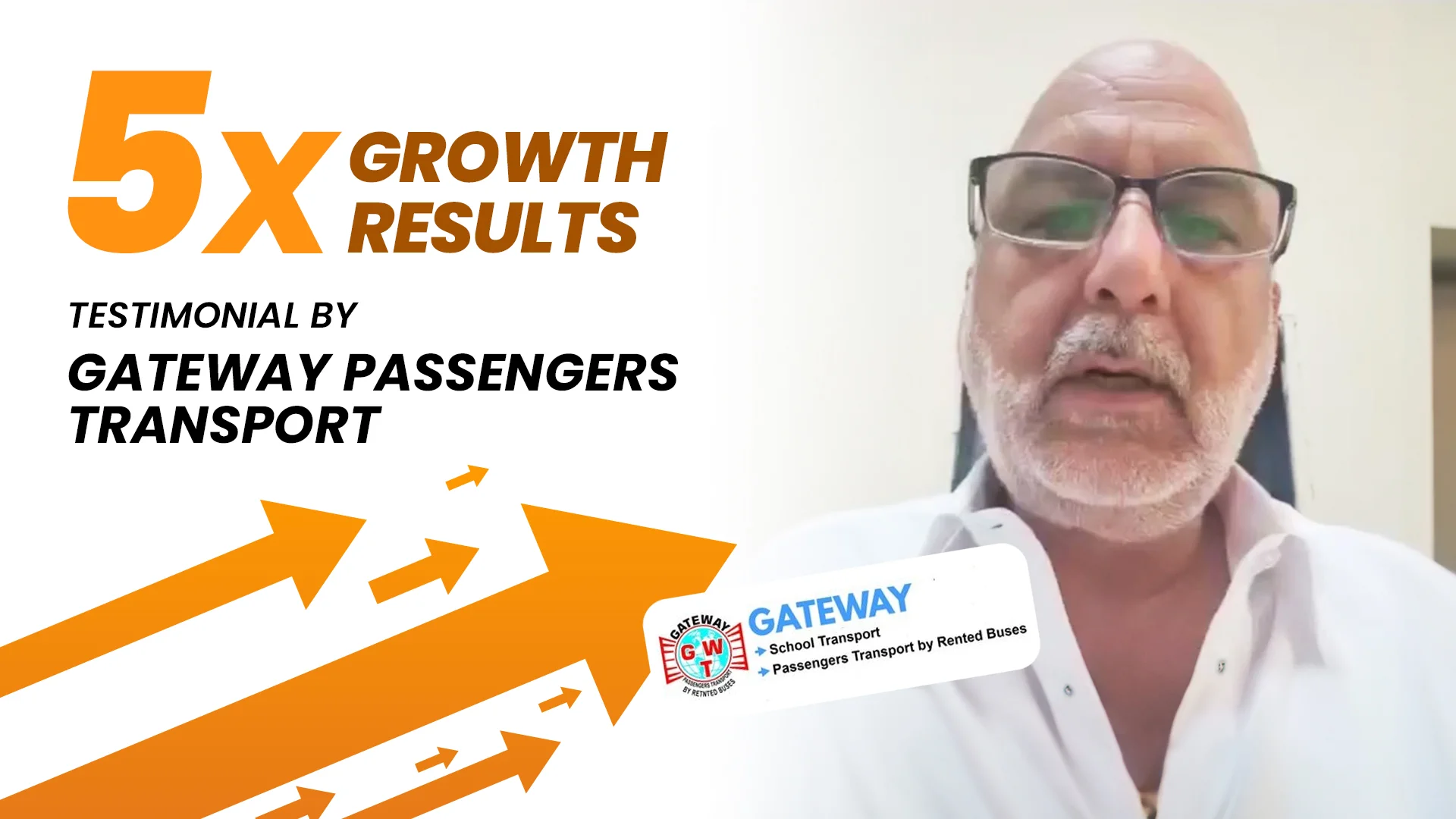

Our Capabilities
Comprehensive Solutions Tailored for You
Keyword Research
Identify high-impact, buyer-intent search terms to boost product and category rankings.
As a leading SEO Company for E‑Commerce, we uncover the terms your customers are actually searching.
Smart keyword targeting = higher visibility + better ROI.
Content Optimization
Craft SEO-rich content that ranks, engages, and converts.
We optimize product pages, blogs, and landing pages to match search intent and boost on-site engagement.
Our SEO Services for E‑Commerce ensure every word works harder.
Technical SEO
Ensure your website runs smoothly, loads fast, and is search-engine friendly.
We fix crawl issues, optimize site speed, and implement structured data for better indexing.
A strong technical foundation is core to our E‑Commerce SEO strategies.
Link Building
Grow your site’s authority through high-quality, relevant backlinks.
We create ethical, e‑commerce-specific link strategies that improve your rankings and trust signals.
Backed by our reputation as a trusted Search Engine Optimisation company for E‑Commerce.
Local SEO
Capture traffic and conversions from local shoppers ready to buy.
We optimize your Google Business Profile, listings, and reviews to boost local visibility.
Perfect for D2C e‑commerce brands and regional product delivery models.
Websites That Deliver Real Results
Success Stories That Inspire Confidence
From doubling conversions to reducing bounce rates, Syspree’s websites consistently deliver results. Check out our case studies for in-depth stories of businesses like yours achieving success.
Tailored Designs for Your Unique Needs
Solutions for Every Industry
Our Global Presence
Countries We are Present In

Fueling Growth Through Data Excellence
Proven Success in Numbers
OUR LEADERSHIP


Our leadership ensures Syspree delivers innovation and measurable results through expert website design and development strategies.
OUR TEAM























Our skilled team combines creativity with precision, building websites that deliver exceptional user experiences and business results
CASE STUDIES
Proven Results Across Industries
Explore how Syspree has helped businesses across industries achieve measurable growth with tailored digital marketing and web development strategies. From e-commerce to tech startups, our custom solutions deliver proven results that drive revenue, improve customer acquisition, and enhance brand visibility
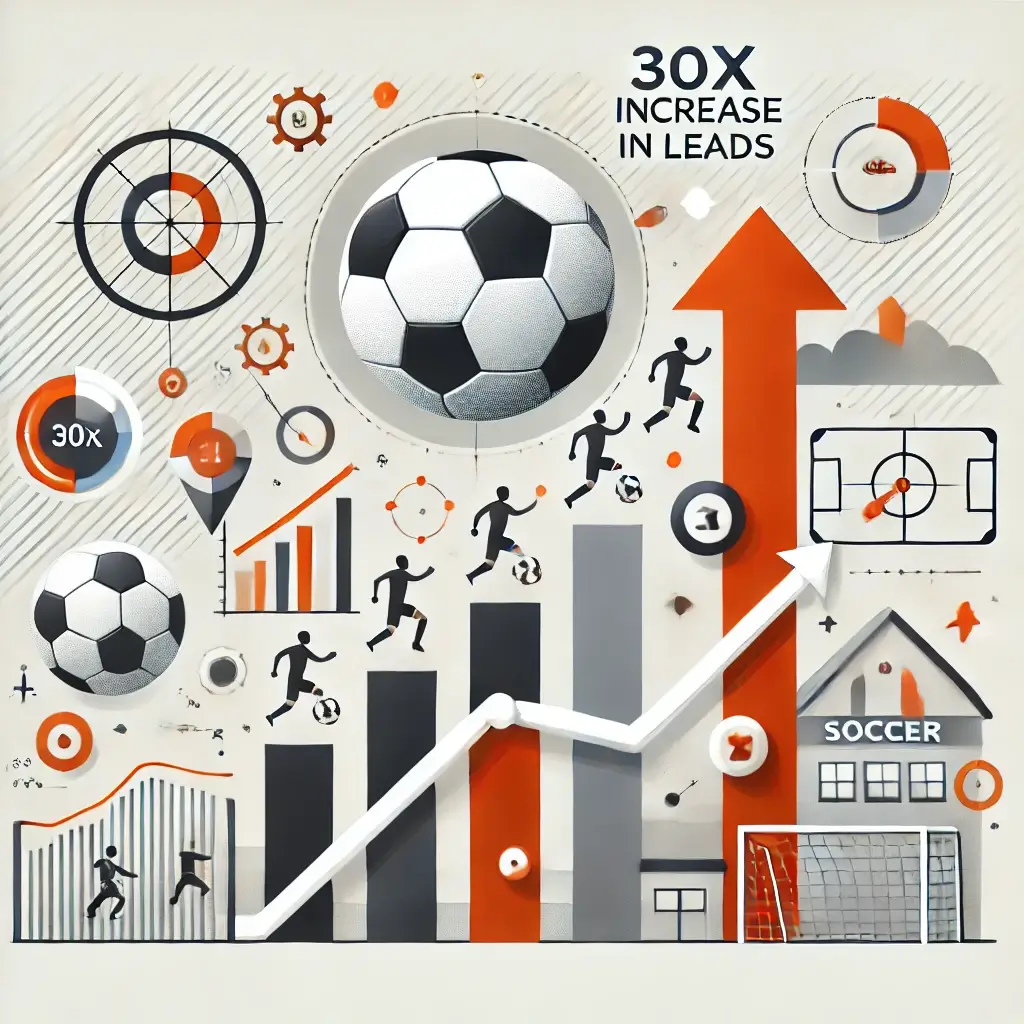
CASE STUDIES
30 Times Surge in Leads within a year
Sports Coaching Company

CASE STUDIES
Astounding 800% Increase in FMCG Distributor’s Web Traffic in Just 13 Months!
FMCG Distributors
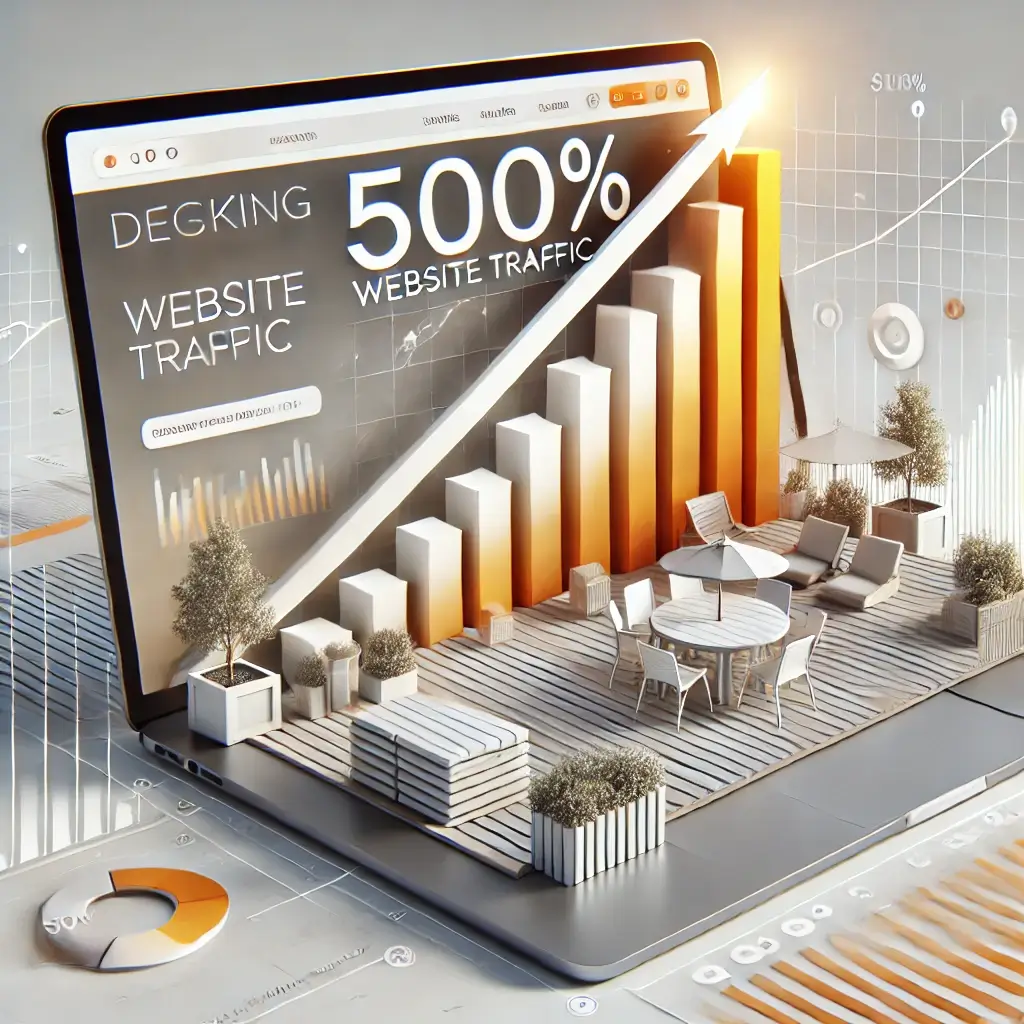
CASE STUDIES
500% Traffic boost in only 6 months
DECKING AND PATIO COMPANY
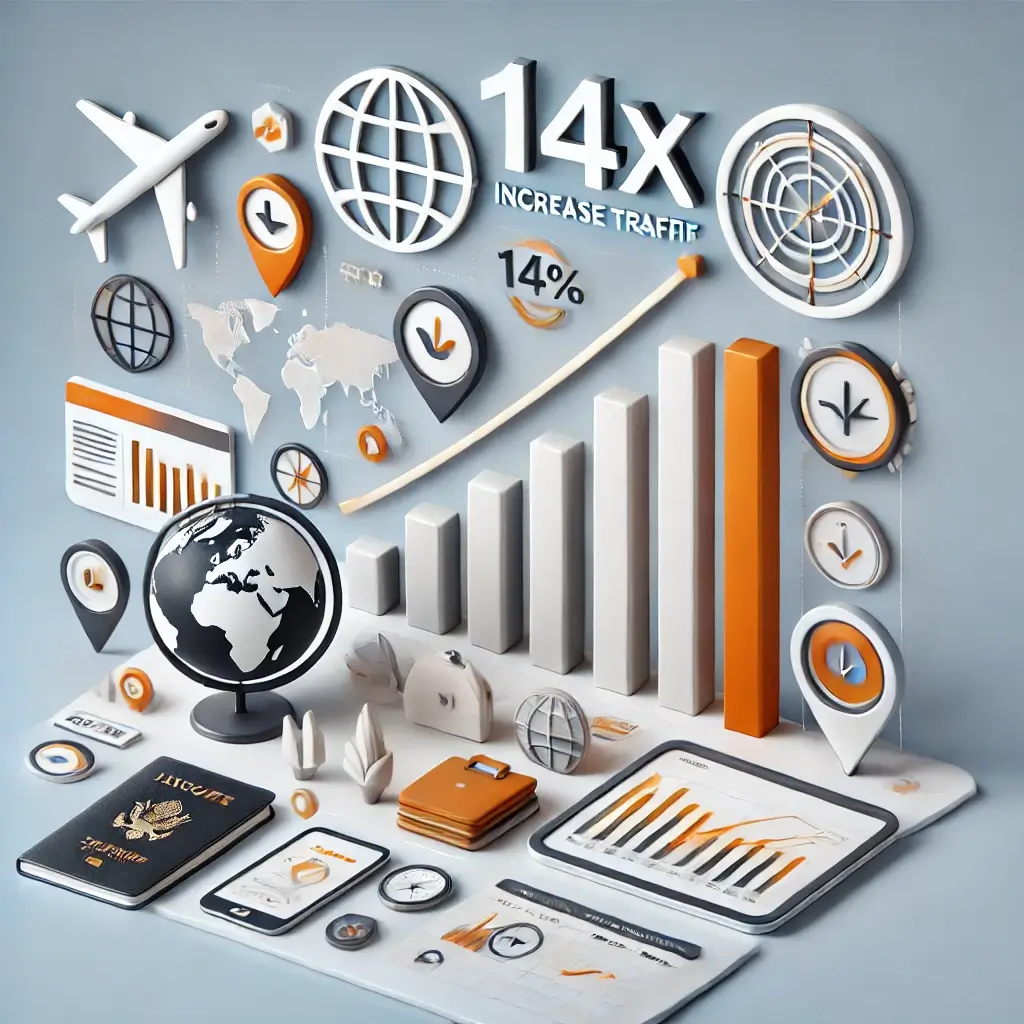
CASE STUDIES
Improve Your Traffic by 1400% In Just 2 months!
Immigration Company

CASE STUDIES
900% Traffic Surge in Just 1.5 Years
Holistic Lifestyle
e-commerce
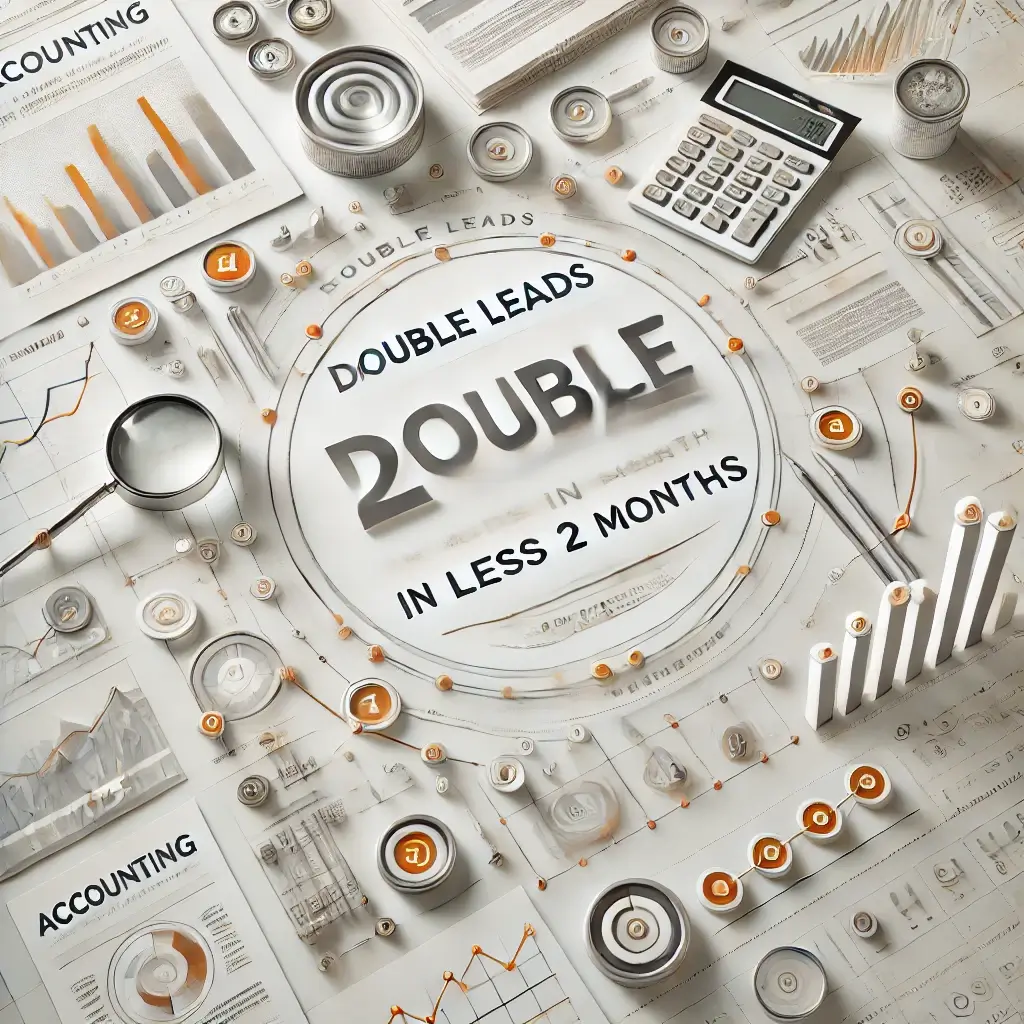
CASE STUDIES
Double Leads for Accounting company in just 2 months
Accountants and corporate services
OUR EXPERTISE, YOUR KNOWLEDGE
Blogs, Podcasts,Vlogs
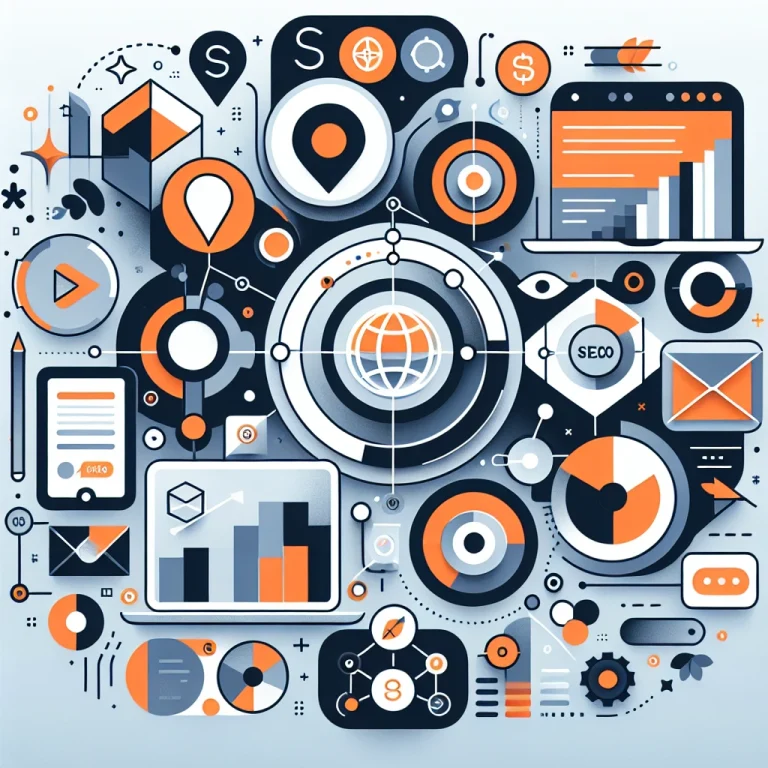
Revolutionize Your E-Commerce Strategy with SEO Insights
Let’s Make Your Vision a Reality
Transform Your Digital Landscape Today
FAQ
Your E-Commerce SEO Questions Answered
In today’s highly competitive digital landscape, e-commerce businesses can no longer rely solely on organic growth or sporadic advertising efforts to stay visible, attract customers, and drive revenue. Whether you’re a new online store or a scaling brand, working with a specialised digital marketing agency can be the game-changing decision that propels your business to the next level. A combination of SEO and paid ads offers the perfect balance of sustainable growth and rapid customer acquisition — but to truly capitalise on these opportunities, you need the expertise of a dedicated SEO Company for E-commerce.
Below, we explore the specific benefits e-commerce businesses gain by partnering with a digital marketing agency that provides both SEO Services for E-commerce and paid advertising expertise.
1. Improved Online Visibility and Higher Search Rankings
One of the primary benefits of hiring an SEO Agency for E-commerce is the ability to significantly improve your store’s visibility across search engines. SEO is not just about ranking high; it’s about ranking for the right keywords that drive qualified traffic to your product pages. Agencies use data-driven keyword research, on-page optimisation, technical SEO, and high-quality content strategies to ensure your site ranks for search terms with strong commercial intent.
A reputable Search Engine Optimisation company for E-commerce also ensures your website architecture is crawlable, your page speeds are optimised, and your mobile usability is top-tier — all critical ranking factors in Google’s algorithm.
2. Faster Traffic Growth Through Targeted Paid Ads
While SEO builds long-term momentum, paid ads (PPC) deliver instant visibility. A digital marketing agency strategically manages platforms like Google Ads, Meta (Facebook/Instagram), and Shopping Ads to capture high-intent customers who are ready to buy. They structure campaigns around buyer personas, product-level intent, and seasonal demand, giving your store a consistent flow of traffic and conversions.
When combined with SEO, this dual approach creates a flywheel effect: organic traffic builds over time while paid ads fill short-term revenue gaps — all managed by a team that understands your brand goals and ROI expectations.
3. Data-Driven Strategy and Real-Time Optimisation
Top-tier agencies don’t guess — they track and test. They use tools like Google Analytics, Search Console, GA4, Meta Pixel, and A/B testing platforms to gather performance insights across every campaign and keyword. This means your SEO and paid strategies are constantly optimised based on what’s actually working, not assumptions.
By partnering with an expert SEO Company for E-commerce, you gain access to data analysts, strategists, and performance marketers who can pivot quickly, reduce wasteful ad spend, and improve your marketing efficiency.
4. Conversion Rate Optimisation (CRO) Built Into the Process
Driving traffic is one part of the puzzle. Converting that traffic into revenue is where agencies truly shine. Experienced SEO Services for E-commerce include CRO tactics such as optimising landing pages, improving UX/UI design, simplifying checkout flows, and aligning product descriptions with searcher intent.
This results in higher Average Order Value (AOV), lower bounce rates, and increased customer satisfaction — all of which contribute to long-term profitability and brand loyalty.
5. Lower Cost-Per-Acquisition (CPA) and Customer Lifetime Value (CLV)
When your SEO and paid ads are managed under one strategic umbrella, you benefit from shared insights that reduce duplication and improve targeting. For example, paid ad performance data can inform SEO content strategy, while high-performing organic keywords can guide ad copy and bidding tactics.
The result? Lower customer acquisition costs and better return on ad spend (ROAS), with a long-term increase in lifetime customer value thanks to better engagement and retention strategies.
6. Access to a Full Team of Experts Without Building In-House
Hiring an in-house marketing team with SEO, paid media, content, design, and data skills can be expensive and time-consuming. A full-service digital marketing agency gives you access to an entire team of specialists — all working together to drive your e-commerce brand forward. This not only saves on recruitment and training costs but also brings fresh industry insights and a broad knowledge of platform updates, trends, and best practices.
7. Scalability and Flexibility for Seasonal or Growth Campaigns
Need to scale aggressively during peak season? Launching in a new market or testing a new product line? Agencies are structured to adapt and scale campaigns quickly. Whether it’s boosting your Google Shopping feed, running influencer-led Instagram ads, or building pillar content for long-tail SEO, they help you seize growth opportunities without overextending your internal resources.
This is especially critical for e-commerce businesses that face seasonal spikes or want to expand globally. A trusted SEO Agency for E-commerce ensures your infrastructure is ready to scale — fast.
8. Consistent Branding and Messaging Across All Channels
Working with a unified agency for both SEO and ads ensures brand messaging remains consistent — from search snippets and ad headlines to landing page copy and email follow-ups. Consistency builds brand trust, which is essential for increasing conversion rates and repeat business in e-commerce.
The agency takes time to understand your brand voice, customer pain points, and value proposition so that every campaign resonates with your ideal buyer.
9. Ongoing Reporting and Transparent ROI Measurement
A credible Search Engine Optimisation company for E-commerce will provide regular reports that break down what’s working, what needs improvement, and how every rupee or dollar is contributing to growth. These aren’t just vanity metrics — they include KPIs like organic traffic share, keyword ranking improvements, ROAS, customer acquisition cost, bounce rates, and average session duration.
Agencies also integrate these insights with your sales data or CRM tools to paint a clearer picture of what’s driving real business outcomes — not just clicks.
10. Staying Ahead of Algorithm and Platform Updates
Google’s algorithm updates can affect your organic rankings overnight. Ad platform policies and bidding models also change frequently. A professional SEO Company for E-commerce stays updated on all platform changes and quickly adjusts your strategy to remain compliant and competitive.
This proactive approach ensures you’re never caught off guard, whether it’s a core update affecting search rankings or Meta shifting its ad formats or policies.
In Conclusion
Hiring a digital marketing agency that offers integrated SEO Services for E-commerce and paid advertising management is no longer optional for ambitious online stores — it’s essential. These experts blend data, strategy, creativity, and technical know-how to help you scale traffic, improve conversions, and dominate your category.
From being found on Google to being remembered by your customers, the right agency becomes more than a vendor — it becomes a growth partner. Whether you’re looking to improve your visibility, reduce CAC, or expand globally, partnering with a full-service SEO Agency for E-commerce ensures your efforts are consistent, measurable, and aligned with long-term success.
In the highly competitive e-commerce landscape, getting traffic to your website is just the beginning. What truly determines business success is how effectively your site converts that traffic into paying customers—and how cost-efficiently you acquire those customers. Digital marketing agencies play a crucial role in bridging this gap by combining performance-driven strategies with conversion-optimised design, content, and analytics.
Whether you’re a startup brand or a growing online retailer, partnering with a digital marketing agency—especially one recognised as a leading SEO Company for E-commerce—can dramatically improve both conversion rates (CR) and customer acquisition costs (CAC). Here’s how they do it.
1. Technical SEO That Builds a Strong Foundation
Before you can optimise for conversions, your site must be technically sound. A skilled Search Engine Optimisation company for E-commerce starts with a thorough audit of your site’s infrastructure. This includes:
Fast loading speed
Mobile responsiveness
Clean site architecture
Crawlability and indexation
Core Web Vitals compliance
HTTPS and secure checkout flows
These technical improvements not only improve user experience but also help Google rank your pages better. Higher rankings mean more visibility, better-quality traffic, and lower cost per acquisition from organic sources.
2. Conversion-Centric UX/UI Design
Design isn’t just about aesthetics—it’s about guiding users to take action. A top SEO Agency for E-commerce will analyse heatmaps, scroll behavior, and click paths to rework layouts for higher conversion potential. Key elements they optimise include:
Clear calls-to-action (CTAs)
Product page hierarchy
Mobile checkout experience
Sticky navigation and filtering
Real-time trust badges, reviews, and urgency triggers (like “Only 3 left!”)
All these enhancements reduce friction during the shopping journey, increasing the percentage of users who complete purchases.
3. SEO-Optimised Content That Matches Search Intent
A digital marketing agency uses SEO-driven content to attract the right kind of traffic—shoppers who are already searching for what you sell. By targeting high-converting keywords and aligning product descriptions, blog content, FAQs, and landing pages with buyer intent, they raise both organic visibility and conversion probability.
For example, an SEO Services for E-commerce plan might include creating:
Category-level content for search terms like “best skincare for oily skin”
Long-form product guides like “How to choose the right gaming monitor”
FAQ sections that resolve purchase hesitations
This educational content not only supports SEO but also addresses pain points, instilling confidence in buyers.
4. Advanced A/B Testing and CRO
Digital marketing agencies take the guesswork out of optimisation through rigorous conversion rate optimisation (CRO) testing. A/B testing different versions of product pages, headlines, CTA buttons, and checkout flows allows them to learn what drives more conversions—and implement winning variations across the site.
By tracking micro-conversions (like “Add to Cart” clicks) and macro-conversions (completed checkouts), they continuously refine UX and messaging. This iterative process helps drive up revenue-per-visitor without increasing traffic costs.
5. Retargeting to Recover Lost Sales
Most e-commerce sites lose over 70% of their potential customers before checkout. Agencies deploy retargeting campaigns via Google Display, Meta Ads, and email flows to re-engage these users and bring them back.
They’ll segment audiences based on behaviors like product views, cart abandonment, or time on site—and craft tailored messages to convert them. Retargeting boosts ROI and reduces CAC by turning warm leads into buyers instead of acquiring entirely new cold traffic.
6. Optimised Product Feeds for Shopping Campaigns
Paid ads are a powerful way to get visibility, but they can be costly if not managed well. A performance-driven SEO Company for E-commerce also manages your Google Shopping feeds, ensuring product titles, descriptions, prices, and images are fully optimised.
Why does this matter? Because Shopping Ads with properly structured feeds and keyword relevance tend to outperform generic ads—delivering better conversion rates and lower costs per click.
7. End-to-End Funnel Tracking and Attribution
An experienced SEO Agency for E-commerce will set up proper event tracking using GA4, Meta Pixel, and third-party tools like Hotjar or Crazy Egg to understand the full customer journey—from discovery to purchase.
By mapping what channels, devices, and campaigns contribute to each conversion, they optimise your marketing spend. If organic traffic is bringing in cheaper conversions than paid traffic for a certain product line, budget and effort can be reallocated accordingly. This data-led optimisation directly lowers CAC.
8. Integrated Email and SMS Marketing for Retention
Customer retention plays a huge role in improving long-term CAC. Agencies integrate platforms like Klaviyo or Mailchimp to create automated email flows that nurture new leads, recover abandoned carts, and upsell existing customers.
SMS marketing, when used responsibly, further enhances engagement and reactivation rates. These post-purchase flows keep your brand top of mind and drive repeat orders—reducing your reliance on paid acquisition over time.
9. Keyword Strategy That Targets High-Buying Intent
Rather than going after high-volume keywords, a smart Search Engine Optimisation company for E-commerce targets terms with high commercial intent. These could include:
“Buy wireless earbuds online”
“Affordable maternity wear India”
“Next-day delivery electronics”
Such keywords often convert better than informational ones and attract visitors closer to making a purchase, thereby increasing conversion rates and improving ROAS.
10. Holistic Reporting to Measure CR and CAC
Finally, digital agencies provide comprehensive performance reports that track:
Conversion rate (CR) by traffic channel
Customer acquisition cost (CAC) by campaign
Average order value (AOV)
Return on ad spend (ROAS)
Lifetime customer value (LTV)
These metrics give you actionable insight into how efficiently your e-commerce site is turning traffic into revenue. You’re not just seeing clicks—you’re seeing impact.
Final Thoughts
Improving your conversion rates and reducing your customer acquisition cost doesn’t happen by chance—it’s the result of strategic planning, relentless testing, and expert execution. That’s exactly what a performance-driven digital marketing agency provides.
By combining the long-term gains of SEO Services for E-commerce with the immediate impact of paid ads, they help you build a conversion engine that is scalable, measurable, and profitable. From fine-tuning your product pages to crafting data-backed campaigns, their job is to maximise every rupee you spend—and minimise wasted potential.
So whether you’re struggling with high bounce rates, low ROAS, or expensive CPCs, partnering with an experienced SEO Company for E-commerce can give you the clarity, structure, and strategy needed to grow faster, spend smarter, and convert better.
In the fast-moving world of e-commerce, data isn’t just valuable—it’s vital.
Every click, view, scroll, and conversion reveals something about customer intent, behaviour, or market demand. But most online businesses don’t have the time, tools, or expertise to make sense of this overwhelming stream of information. That’s where partnering with a digital marketing agency—especially one recognised as a leading SEO Company for E-commerce—can make all the difference.
When leveraged properly, data analytics can supercharge your growth strategy. It allows your brand to make smarter decisions, personalise customer experiences, reduce wasted ad spend, and dramatically improve ROI. Let’s explore how a digital marketing agency for e-commerce turns raw data into a powerful growth engine.
1. Tracking the Full Customer Journey
A top-tier agency starts by setting up proper tracking infrastructure across your e-commerce website, marketing channels, and CRM. This includes:
Google Analytics 4 (GA4)
Meta Pixel
Google Tag Manager
Heatmaps and session recordings
Enhanced ecommerce tracking
Attribution modeling tools
This comprehensive view allows them to map the entire customer journey—from first click to final conversion—and pinpoint exactly where users drop off or convert. These insights are the foundation of all future strategy.
2. Understanding Traffic Quality, Not Just Quantity
Many e-commerce owners celebrate high traffic numbers—but quantity doesn’t equal quality. A specialist SEO Services for E-commerce team dives deeper into metrics like:
Time on page
Bounce rate
Pages per session
Exit paths
Return visitor rate
This helps determine which traffic sources are actually bringing high-intent buyers and which are generating vanity metrics. For example, if organic search has a high conversion rate but paid traffic has a low ROAS, the agency can shift your focus accordingly—optimising your return on investment.
3. Keyword Performance and Intent Mapping
An expert SEO Agency for E-commerce doesn’t just throw keywords at your site and hope for the best. Instead, they use tools like Google Search Console, SEMrush, Ahrefs, and keyword clustering software to evaluate:
Keyword click-through rates (CTR)
Bounce rate by keyword
Keyword-to-page relevance
Commercial vs. informational intent
Keyword cannibalisation
This insight helps them prioritise intent-driven keywords that attract visitors who are ready to buy—leading to more revenue and lower customer acquisition costs (CAC).
4. Product and Category Analytics for Growth
One of the most valuable contributions of a Search Engine Optimisation company for E-commerce is helping you identify your top-performing and underperforming products. Using product analytics dashboards, agencies measure:
Product views
Add-to-cart rate
Cart abandonment rate
Purchase frequency
Inventory turnover vs. search traffic
These insights can guide product promotions, upsell strategies, and even your inventory decisions. You’ll know which products to push harder with SEO and paid ads—and which to optimise or retire.
5. Ad Campaign Optimisation Using Conversion Data
When it comes to paid advertising, data analytics becomes your secret weapon. A performance-driven digital marketing agency integrates Google Ads, Meta Ads Manager, and other PPC platforms with your analytics tools. They track:
Cost-per-click (CPC)
Click-through rate (CTR)
Conversion rate (CR)
Return on ad spend (ROAS)
View-through conversions
This allows the agency to fine-tune bidding strategies, optimise targeting, test ad copy variations, and scale only the campaigns delivering the highest ROI. You’re no longer wasting money on non-performing ads.
6. Audience Segmentation and Personalisation
A smart SEO Company for E-commerce goes beyond demographics—they build behavioural segments based on how users interact with your store. These segments might include:
First-time vs. returning visitors
Cart abandoners
Users who viewed a product but didn’t purchase
High-value repeat buyers
Mobile shoppers vs. desktop
Using this data, they personalise website experiences, retargeting campaigns, and email flows—resulting in higher conversions and more efficient spending.
7. Email and Lifecycle Analytics
Retention is as important as acquisition. Agencies use platforms like Klaviyo, Omnisend, and Mailchimp to track:
Open and click rates
Revenue per email
List growth and churn
Automation performance (cart recovery, browse abandonment, etc.)
By analysing lifecycle data, they craft smarter customer journeys that increase repeat purchases, boost average order value (AOV), and reduce dependency on new traffic for growth.
8. CRO Testing and UX Data
Conversion Rate Optimisation (CRO) is where data analytics meets design. Agencies track micro-interactions across your site—such as scroll depth, form completion, and CTA clicks—and run A/B tests to improve page performance.
Tools like Hotjar, Crazy Egg, and VWO help identify design bottlenecks and user friction points. From there, a Search Engine Optimisation company for E-commerce can redesign landing pages or product templates to drive more conversions without increasing your traffic spend.
9. Forecasting and Predictive Analytics
Top digital marketing agencies use historical data to predict future outcomes. For example:
Predicting which channels will drive the most conversions during Black Friday
Forecasting revenue based on current ad performance
Estimating lifetime value of newly acquired customers
Anticipating seasonal demand for product categories
With machine learning tools and modelling, agencies ensure you’re prepared ahead of time—optimising stock, spend, and messaging proactively.
10. Performance Dashboards and Transparent Reporting
Finally, one of the biggest advantages of working with a data-driven SEO Agency for E-commerce is the visibility you get into your performance. Agencies build easy-to-understand dashboards that show:
ROI by campaign and channel
CAC by customer segment
Best and worst-performing landing pages
Keyword movement over time
Funnel drop-off points
This kind of transparent reporting allows you to make better decisions, justify budgets, and stay in control of your marketing performance.
Final Thoughts
In a market where every rupee or dollar counts, working with a digital marketing agency for e-commerce that specialises in analytics is one of the most effective ways to maximise your returns. Data analytics empowers agencies to go beyond guesswork—to build strategies that are evidence-backed, goal-oriented, and performance-optimised.
From search visibility to ad efficiency and site performance, every action becomes measurable—and therefore, improvable. Whether you’re focused on scaling profitably, lowering CAC, or boosting retention, a well-aligned agency partner will use analytics not just to track success but to engineer it.
So, if you want your brand to grow with precision, agility, and clarity, the path forward is simple: trust the data—and the SEO Company for E-commerce that knows how to use it.
In today’s hyper-digital e-commerce landscape, brands are no longer asking “Should we market online?”—they’re asking “What kind of online marketing drives the best results?” This is where the distinction between performance marketing and traditional marketing becomes critical.
While traditional marketing focuses on broad exposure and brand awareness, performance marketing is data-driven, ROI-focused, and entirely measurable. And for e-commerce businesses where every click, view, and conversion matters, performance marketing has become the go-to strategy for measurable growth.
A trusted digital marketing agency—especially a results-focused SEO Company for E-commerce—can help brands shift from traditional tactics to performance-driven campaigns that are trackable, optimisable, and profitable.
Here’s a deep dive into how performance marketing differs from traditional marketing—and why e-commerce businesses are embracing it.
1. Measurement: ROI vs Reach
Traditional Marketing:
Traditional marketing relies on mass exposure. Think TV ads, radio spots, print ads, and billboards. While these can build long-term brand equity, they lack precise tracking. You might know your newspaper ad reached 50,000 readers—but how many of them visited your site or made a purchase? That remains unclear.
Performance Marketing:
With performance marketing, every metric is measurable. Clicks, impressions, cost-per-click (CPC), conversion rate, customer acquisition cost (CAC), and return on ad spend (ROAS)—you see it all in real-time. A qualified SEO Services for E-commerce team will help monitor, optimise, and scale based on actual performance—not assumptions.
2. Targeting: Mass Audience vs Precision
Traditional Marketing:
A traditional campaign targets large demographics—like “women aged 25-40 in metro cities.” It’s broad and non-specific, meaning much of your budget may reach people who aren’t your ideal buyers.
Performance Marketing:
Digital platforms allow hyper-targeting. Whether it’s interest-based audiences on Facebook or purchase-intent keywords on Google, performance marketing ensures your budget is spent on people who are already looking for what you sell. This dramatically improves efficiency—something a skilled SEO Agency for E-commerce prioritises.
3. Channels: Offline vs Digital Ecosystem
Traditional Marketing:
Channels are offline—TV, newspapers, radio, outdoor advertising. While valuable for creating general awareness, they’re passive and one-way.
Performance Marketing:
This strategy thrives across multiple digital platforms—Google Ads, Meta, Instagram, LinkedIn, YouTube, affiliate networks, influencer campaigns, and of course, organic search. By partnering with a Search Engine Optimisation company for E-commerce, your brand gets visibility across every relevant digital touchpoint.
4. Payment Model: Upfront vs Results-Based
Traditional Marketing:
You pay in advance—regardless of whether the campaign performs. For example, a ₹5 lakh print campaign gives no guarantee of leads or conversions.
Performance Marketing:
This model is often pay-for-results. You can pay per click (PPC), per impression (CPM), per acquisition (CPA), or per conversion. It’s flexible, scalable, and low-risk. The better the performance, the more you spend—and the more you earn.
5. Speed: Delayed Impact vs Real-Time Feedback
Traditional Marketing:
Campaigns often take weeks or months to plan and roll out. Feedback is delayed, and if it underperforms, you’ve already invested heavily.
Performance Marketing:
Digital campaigns go live quickly. Ads can be adjusted daily or even hourly. A digital marketing agency for e-commerce can test new creatives, pause underperforming ads, or shift budgets in real time. This agility leads to better control and lower CAC.
6. Creativity: One-Off Ads vs Continuous Optimisation
Traditional Marketing:
Creatives are usually static. A print ad stays the same for a month. A TV commercial doesn’t evolve with performance.
Performance Marketing:
Creative optimisation is continuous. A/B testing headlines, product images, CTA buttons, and landing pages is standard. Top SEO Services for E-commerce combine CRO, UX/UI tweaks, and ad creative testing to increase conversion rates without increasing spend.
7. Customer Journey: Push vs Pull
Traditional Marketing:
It’s a “push” model. You interrupt audiences with your message, hoping they respond.
Performance Marketing:
It’s a “pull” model. Users actively search for products (via Google or Amazon), or they engage with content that interests them. A smart SEO Agency for E-commerce ensures you appear right when customers are ready to buy.
8. Personalisation and Retargeting
Traditional Marketing:
Everyone sees the same message. There’s no dynamic personalisation.
Performance Marketing:
Messages can be tailored to user behaviour. Someone who viewed a product but didn’t buy can be shown a retargeting ad with a discount. A past customer can receive an email about a complementary item. This personalisation is powered by data and helps reduce drop-offs and improve ROI.
9. Attribution and Funnel Analysis
Traditional Marketing:
You can’t pinpoint exactly what caused someone to purchase. Was it your TV ad? A word-of-mouth referral? You’re left guessing.
Performance Marketing:
You can attribute conversions to specific channels, devices, creatives, or even time of day. A good Search Engine Optimisation company for E-commerce will build dashboards that show you what’s working—so you can double down on high-performing assets and cut the waste.
10. Scalability and Experimentation
Traditional Marketing:
Scaling requires huge budgets. You commit large amounts for mass distribution, and experimentation is risky and expensive.
Performance Marketing:
Start with a small test budget, gather data, and scale what works. A campaign with a ₹10,000 test budget can be scaled to ₹1,00,000 once it’s proven. This is the kind of agile strategy a results-driven SEO Company for E-commerce will deploy for rapid yet safe growth.
Why This Matters for E-commerce
E-commerce businesses depend on measurable performance—you can’t afford to spend without knowing what you’ll get back. Traditional marketing might work for luxury or legacy brands seeking prestige or awareness. But for modern online retailers, every rupee must drive:
Traffic
Conversions
Revenue
Retention
That’s why leading e-commerce brands rely on digital marketing agencies with strong performance marketing capabilities and SEO expertise. These agencies craft campaigns designed not just to attract attention—but to convert that attention into measurable sales.
Whether it’s through organic SEO, paid ads, affiliate promotions, or conversion optimisation, every tactic serves a single goal: maximum return on investment.
Final Thoughts
In the battle between traditional and performance marketing, the winner in e-commerce is clear. Performance marketing gives brands full control over their spend, strategy, and scalability. It eliminates guesswork and empowers data-driven decisions that lead to measurable growth.
By collaborating with a seasoned SEO Agency for E-commerce, you gain access to specialists who not only understand digital platforms but also know how to tie every click and conversion to business goals. They blend analytics with creativity, channel mastery with content, and SEO with paid growth strategies.
So if you’re still relying on outdated traditional marketing for your e-commerce store, it’s time to upgrade. Choose performance. Choose results. Choose a Search Engine Optimisation company for E-commerce that delivers measurable success—every time.
The digital landscape is changing fast, and e-commerce brands that fail to adapt quickly risk falling behind. Fortunately, top digital marketing agencies—especially those recognised as a trusted SEO Company for E-commerce—stay ahead of these shifts and craft cutting-edge strategies that are results-driven, measurable, and aligned with how today’s consumers shop.
Whether you’re launching a new product, scaling a D2C store, or expanding into international markets, these agencies use a well-rounded mix of SEO Services for E-commerce, paid media, conversion tactics, and retention campaigns to drive both short-term and long-term growth.
Let’s break down the most effective e-commerce marketing strategies currently being used by industry-leading agencies in 2025.
1. Intent-Driven SEO for Long-Term Organic Growth
A cornerstone strategy is investing in Search Engine Optimisation. A top SEO Agency for E-commerce focuses on building organic traffic that converts—by targeting keywords with high commercial intent and optimising the entire funnel from search to sale.
Here’s how they do it:
Comprehensive keyword mapping across category and product pages
Creating helpful blog content that matches searcher intent
Technical SEO audits to improve crawlability and page speed
Optimising for Google’s Helpful Content Update and EEAT standards
Schema markup for product listings and reviews
Internal linking to guide users across the buying journey
This long-term, compounding growth strategy is a cost-effective way to acquire customers while building brand authority.
2. Full-Funnel Paid Media Campaigns
Paid advertising isn’t just about visibility—it’s about guiding potential buyers down the conversion path. The best digital marketing agencies for e-commerce design full-funnel campaigns across platforms like Google Ads, Meta (Facebook/Instagram), YouTube, and Shopping Ads.
These campaigns typically include:
TOFU (Top of Funnel): Discovery and engagement ads using video, reels, or carousels
MOFU (Middle of Funnel): Retargeting users who visited product pages or added items to cart
BOFU (Bottom of Funnel): High-intent Google Shopping or branded search ads to close sales
By matching messaging to each stage of the buyer journey, agencies reduce ad waste and maximise ROAS.
3. CRO (Conversion Rate Optimisation) to Maximise Every Visit
Bringing traffic is just the beginning. Top-performing SEO Services for E-commerce include deep CRO strategies that optimise your website experience so that more visitors convert.
This involves:
A/B testing of CTAs, layouts, and product page elements
Simplifying the checkout flow
Adding urgency (low-stock warnings, countdown timers)
Building trust through reviews, badges, and social proof
Improving mobile UX for tap-friendly navigation and faster load times
Higher conversion rates mean lower CAC and higher profits—without increasing your ad spend.
4. Hyper-Personalised Email & SMS Marketing
The best digital marketing agencies don’t just focus on acquiring new customers—they also maximise lifetime value through lifecycle marketing. Platforms like Klaviyo, Mailchimp, and SMSBump are used to create personalised automation flows such as:
Welcome series for new subscribers
Abandoned cart recovery
Browse abandonment follow-ups
Post-purchase cross-sells
Replenishment reminders for consumables
Win-back emails for inactive customers
Each of these flows is based on behavioural data, and when executed well, they can drive 20–40% of your total revenue.
5. Data-Driven Campaign Optimisation
No top Search Engine Optimisation company for E-commerce or paid media agency runs static campaigns. Everything is tested, measured, and optimised regularly.
They use tools like:
GA4 and enhanced eCommerce tracking
Meta Pixel
Heatmaps and session replays
Funnel visualisation tools
Attribution software
These insights drive decision-making: which keywords to scale, which ads to pause, what content to refresh, and where to shift budgets.
6. Influencer & UGC Campaigns That Convert
Influencer marketing isn’t just for brand awareness anymore. Top e-commerce agencies now integrate influencers and user-generated content (UGC) into conversion-focused strategies.
Examples include:
Running whitelisted ads through influencer handles
Showcasing real customer unboxing videos on product pages
Creating testimonial ads for retargeting
Using micro-influencers for niche product launches
These efforts boost authenticity, trust, and social proof—all key drivers of conversion.
7. High-Impact Content Marketing
Content still plays a vital role, especially when it’s crafted for both SEO and buyer education. Agencies create:
SEO-optimised buying guides
Product comparison articles
“How to use” video content
Interactive quizzes to personalise shopping
Content hubs for specific product categories (e.g., “Men’s grooming tips”)
This content attracts organic traffic, helps customers make informed decisions, and nurtures leads further down the funnel.
8. Shopping Feed Optimisation for Google and Marketplaces
An often-overlooked strategy is product feed optimisation, especially for Google Shopping, Meta Catalog, and platforms like Amazon or Flipkart.
Top agencies:
Optimise product titles and descriptions with keywords
Include product identifiers (GTINs, MPNs) for better visibility
Ensure proper categorisation and image specs
Add dynamic pricing and inventory updates
Use remarketing lists for shopping ads (RLSAs)
This ensures your listings show up more frequently—and convert more often.
9. Omnichannel Retargeting and Remarketing
Agencies combine data from multiple platforms to build smart retargeting sequences that increase chances of conversion. For example:
A user who clicked a Facebook ad, viewed a product, but didn’t purchase might see a Google Display ad next
A cart abandoner receives a reminder email and an Instagram Story ad featuring a UGC testimonial
Past purchasers see YouTube ads promoting new arrivals or accessories related to their purchase
This cohesive omnichannel retargeting ensures no opportunity is wasted.
10. Localised and International SEO for Global Expansion
For brands selling across borders, top SEO Companies for E-commerce deploy international SEO strategies that include:
Multilingual keyword research
Country-specific landing pages
hreflang implementation
Local currency and shipping information
Region-specific content and FAQs
They also manage local listings and reviews on platforms like Google My Business, Trustpilot, and regionally popular marketplaces—helping e-commerce brands tap into new markets with confidence.
Final Thoughts
In 2025, effective e-commerce marketing is not about doing more—it’s about doing what works better. Top digital agencies rely on proven, data-backed strategies that touch every part of the customer journey—from first click to final purchase and beyond.
By combining the strengths of a performance-focused SEO Agency for E-commerce with expertise in paid media, CRO, content, and automation, these agencies create integrated systems for sustainable growth. The strategies outlined above are not isolated—they are interconnected and optimised as a whole to maximise ROI and customer lifetime value.
If you want to outperform competitors, reduce acquisition costs, and create a brand that lasts, working with a skilled Search Engine Optimisation company for E-commerce is not just an option—it’s a necessity.
In 2025, the e-commerce landscape is more competitive and complex than ever. With AI-powered tools, rising customer expectations, and evolving algorithms, it’s no longer enough to simply have a good-looking online store. You need a digital marketing agency that understands the entire ecosystem of growth, optimisation, and customer acquisition.
A top-tier SEO Company for E-commerce goes far beyond just improving your Google rankings. It becomes a strategic partner—one that drives end-to-end revenue growth by combining search, paid media, conversion tactics, automation, and data science.
Let’s explore what such a digital agency does to consistently boost online store sales for e-commerce brands in 2025.
1. Builds a Traffic Engine with SEO and Content Marketing
A reliable stream of high-intent, organic traffic remains one of the most cost-effective ways to grow an e-commerce business. A proven SEO Agency for E-commerce will:
Conduct deep keyword research focused on product-level and category-level commercial terms
Optimise technical SEO: URL structure, site speed, crawlability, schema markup, and mobile-friendliness
Improve on-page SEO: meta titles, alt texts, headers, and internal linking
Create high-converting, informative content like buying guides, comparison articles, and FAQs
Focus on Google’s Helpful Content guidelines, EEAT (Experience, Expertise, Authority, Trust), and zero-click search optimisation
These efforts help you outrank competitors, attract buyers at every stage of the funnel, and reduce dependency on paid traffic.
2. Launches ROI-Driven Paid Ad Campaigns Across Platforms
While SEO builds long-term value, paid media delivers short-term wins. A digital marketing agency executes cross-channel advertising strategies tailored to your products and margins.
Key platforms include:
Google Ads (Search, Shopping, Performance Max)
Meta Ads (Facebook, Instagram)
YouTube
Bing, Pinterest, Snapchat (as niche allows)
Campaigns are structured across the funnel:
Top-of-Funnel (TOFU): Interest-based ads, reels, discovery content
Mid-Funnel (MOFU): Retargeting and dynamic product ads
Bottom-of-Funnel (BOFU): Branded search, abandoned cart retargeting
Agencies track metrics like ROAS, CPC, CTR, CAC, and attribution across all touchpoints—ensuring every rupee spent delivers measurable value.
3. Improves Conversion Rates with Advanced CRO
One of the most critical contributions of a Search Engine Optimisation company for E-commerce is conversion rate optimisation (CRO). It’s not just about getting traffic—it’s about converting that traffic into paying customers.
CRO strategies include:
A/B testing CTA buttons, product image layouts, mobile menus, and checkout flows
Reducing cart abandonment with progress bars, trust badges, and simplified forms
Personalised product recommendations based on user behaviour
Adding real-time urgency triggers (stock counters, timers)
UX improvements for faster, more intuitive shopping
A 1% lift in conversion rate can mean a significant boost in revenue—without increasing your ad spend.
4. Deploys Personalised Email and SMS Campaigns
Retention is as important as acquisition in 2025. Agencies use tools like Klaviyo, Omnisend, and Attentive to launch automated email and SMS flows that drive repeat purchases and improve customer lifetime value.
Key flows include:
Welcome series for new subscribers
Abandoned cart recovery
Post-purchase follow-ups
Win-back campaigns for lapsed customers
Product replenishment reminders
Seasonal sale or launch notifications
Every campaign is segmented based on behaviour, purchase history, and engagement—making communication personal and effective.
5. Optimises Product Listings for Google Shopping and Marketplaces
Top agencies ensure your product feed is structured and enriched to drive conversions across:
Google Shopping
Amazon
Flipkart
Meta Catalog
Other D2C platforms
They optimise:
Product titles and descriptions with relevant keywords
High-quality images and videos
Category and GTIN accuracy
Dynamic pricing and inventory syncing
Promotions and free shipping indicators
This improves visibility and click-through rates—especially for mobile shoppers who rely heavily on shopping platforms.
6. Leverages UGC and Influencer Marketing for Social Proof
Today’s consumers trust other people more than ads. Agencies help you gather and distribute user-generated content (UGC) and run micro-influencer campaigns to boost credibility and engagement.
What this looks like:
UGC testimonials on landing and product pages
Influencer unboxing videos for launch campaigns
Social media contests encouraging customers to tag your brand
Whitelisted influencer ads for high-performance remarketing
Integration of customer reviews into emails and ads
This strategy improves trust and helps convert cold audiences into loyal customers.
7. Creates Data Dashboards for Full-Funnel Visibility
Understanding what works is essential to improving performance. A data-driven SEO Services for E-commerce plan includes building custom dashboards via:
Google Looker Studio
GA4 + enhanced e-commerce tracking
Shopify analytics or WooCommerce reports
Ad platform integrations
Heatmaps and funnel visualisation
You get clarity into:
Which channels drive the most revenue
Product performance by margin and traffic
Drop-off points in the conversion journey
ROAS and CAC by campaign and audience
Agencies use this data to make fast, informed decisions that keep your store on a path of profitable growth.
8. Sets Up Loyalty Programs and Referral Systems
Driving repeat sales is more cost-effective than acquiring new customers. Agencies integrate tools like Smile.io, LoyaltyLion, and ReferralCandy to:
Reward points for purchases, referrals, and reviews
Offer early access or discounts to loyal buyers
Gamify engagement with tiered programs
Encourage social sharing and gifting
These programs increase AOV and LTV while building brand advocacy organically.
9. Implements AI and Automation for Personalisation
In 2025, AI-driven tools are essential to scale without losing the personal touch. Leading agencies use AI to:
Predict user preferences and personalise product suggestions
Auto-generate personalised product descriptions and recommendations
Trigger automation flows based on engagement behaviour
Chatbots for real-time support and cross-selling
AI-driven bid strategies on Google and Meta for better ROAS
These enhancements save time, reduce costs, and improve conversion rates significantly.
10. Advises on Omnichannel Brand Presence and International Expansion
A skilled digital marketing agency for e-commerce ensures your brand presence is consistent across all channels—website, ads, social, marketplaces, and customer support.
If you plan to go global, agencies also:
Conduct region-specific keyword and market research
Localise content and currency settings
Set up international shipping logic and language tags
Build region-specific SEO landing pages
Align international ad budgets with demand
This holistic support allows your store to scale confidently into new markets with minimal friction.
Final Thoughts
In 2025, scaling an e-commerce store isn’t just about spending more on ads—it’s about investing in smarter strategies, tighter systems, and data-led execution. That’s where an experienced SEO Company for E-commerce or performance-focused digital agency comes in.
From driving high-intent traffic and optimising conversions to retaining customers and expanding your reach, they provide end-to-end growth management that delivers tangible results.
If your goal is to maximise revenue, improve ROI, and build a resilient e-commerce brand, working with a strategic Search Engine Optimisation company for E-commerce isn’t just helpful—it’s essential.
In today’s competitive digital landscape, successful e-commerce marketing isn’t based on assumptions—it’s driven by data. That’s why partnering with a results-focused digital marketing agency is essential. But tracking every metric available isn’t enough. You need the right KPIs—key performance indicators—that align with your business goals.
A seasoned SEO Company for E-commerce or performance marketing agency won’t just run campaigns and hope for the best. Instead, they monitor, analyse, and optimise the most critical data points that impact your traffic, conversions, revenue, and customer lifetime value (LTV).
Here’s a detailed look at the essential KPIs that a high-performing digital marketing agency for e-commerce should be tracking and reporting to you.
1. Traffic Metrics (The Top of the Funnel)
The first layer of any e-commerce strategy is traffic generation. Your agency should track:
Sessions: Total visits to your site.
Users: Unique visitors (first-time or returning).
Traffic Sources: Where traffic is coming from—organic search, paid ads, referral, direct, or email.
New vs. Returning Visitors: Helps measure loyalty and awareness.
Device Breakdown: Desktop vs. mobile vs. tablet performance.
A strong SEO Services for E-commerce strategy will aim to improve both the quality and volume of traffic over time, with a focus on attracting users more likely to convert.
2. Keyword Rankings and Organic Visibility
If you’ve hired an SEO Agency for E-commerce, rankings are a critical KPI to monitor. Expect reports on:
Primary keyword rankings for core product and category pages.
Movement trends (ranking gains or drops).
SERP features (featured snippets, people also ask, etc.).
Click-through rate (CTR) for ranked keywords.
Impressions and clicks from Google Search Console.
Tracking how your SEO performance evolves helps gauge the effectiveness of your content and technical optimisation.
3. Conversion Rate (CR)
Arguably one of the most important KPIs. Your Search Engine Optimisation company for E-commerce must track:
Overall conversion rate: % of users who complete a purchase.
Conversion rate by traffic source: Which channels deliver the best results?
Conversion rate by device: Is your mobile site performing?
Conversion rate by landing page: Are product and collection pages optimised?
If traffic is high but conversions are low, it’s a CRO (Conversion Rate Optimisation) issue—and your agency should actively test and fix it.
4. Average Order Value (AOV)
Your AOV reflects the average spend per transaction. It’s a key profitability metric.
Agencies monitor:
AOV trends over time
AOV by traffic source or campaign
AOV by product category
AOV impact after upsell/cross-sell implementation
Boosting AOV is one of the fastest ways to increase revenue without increasing traffic or ad spend.
5. Customer Acquisition Cost (CAC)
This tells you how much you’re spending to acquire each new customer.
Your agency will track:
CAC by channel (Google Ads, Facebook, Organic, etc.)
CAC by campaign or audience
CAC vs. AOV or Customer Lifetime Value (LTV)
Changes in CAC over time due to optimisation
High CAC with low LTV is unsustainable—so a smart digital marketing agency always seeks to lower CAC without hurting growth.
6. Return on Ad Spend (ROAS)
ROAS measures the revenue earned for every rupee or dollar spent on ads. It’s a critical KPI for any paid media campaign.
You’ll see breakdowns such as:
Overall ROAS
ROAS by platform (Google, Meta, YouTube)
ROAS by campaign or audience
Incremental ROAS after creative testing or bid adjustments
A top SEO Company for E-commerce or ad agency optimises campaigns constantly to ensure ROAS meets or exceeds profitability targets.
7. Customer Lifetime Value (CLV or LTV)
LTV tells you how much revenue you can expect from a customer over their entire relationship with your brand.
Agencies calculate:
LTV by segment (first-time buyers, repeat customers, VIPs)
LTV trends based on retention strategies
LTV vs. CAC ratio (a healthy benchmark is 3:1 or higher)
LTV determines how much you can afford to spend on acquisition—and your agency’s goal is to increase it through email/SMS campaigns, loyalty programs, and personalised experiences.
8. Cart Abandonment Rate
A major leak in the conversion funnel. Your agency should track:
Overall abandonment rate
Cart abandonment by device or traffic source
Exit pages during the checkout process
Recovery rate through remarketing and abandoned cart emails
A top SEO Services for E-commerce provider will implement CRO tactics to reduce friction and recover lost revenue.
9. Email and SMS Performance
Owned channels like email and SMS are key drivers of retention and remarketing.
Expect reports on:
Open and click-through rates
Unsubscribe and bounce rates
Revenue per email/SMS sent
Performance by flow (cart recovery, post-purchase, win-back)
List growth and segmentation
A well-executed email strategy can drive 25-40% of total e-commerce revenue, especially with proper automation.
10. Page Load Speed and Site Health
User experience affects SEO rankings and conversion rates. Agencies track:
Page speed (mobile and desktop)
Core Web Vitals (LCP, FID, CLS)
Broken links and crawl errors
Server downtime and hosting issues
Mobile usability
Your Search Engine Optimisation company for E-commerce should provide ongoing technical health audits and improvements.
11. Social Media Engagement and Referral Traffic
Even if not your main conversion driver, social matters for brand building.
Track:
Referral traffic from platforms like Instagram, Facebook, Pinterest
Engagement rates (likes, shares, comments)
Follower growth and social impressions
Social ad performance vs. organic reach
Insights here can influence your paid strategy and influencer collaborations.
12. Product Performance KPIs
You need to know what’s selling—and what’s not.
Your agency should report:
Most viewed vs. most purchased products
Product page conversion rate
High-exit product pages
Inventory vs. search demand alignment
Impact of price changes or reviews on performance
These insights help optimise listings, cross-sells, and inventory decisions.
Final Thoughts
Partnering with a high-performing digital marketing agency for e-commerce gives you more than just strategy—it gives you transparency, clarity, and control over your growth.
The KPIs outlined above are not just numbers—they’re decision-making tools. They tell you where to scale, what to fix, and how to make every campaign more profitable. A seasoned SEO Agency for E-commerce not only tracks these KPIs but continuously optimises them—so your online store isn’t just running, it’s thriving.
From reducing CAC and improving ROAS to growing LTV and boosting conversion rates, every tracked metric moves you closer to sustainable, scalable success.
In 2025, social media is no longer a supplementary tactic for e-commerce—it’s a core growth engine. For e-commerce brands aiming to scale, build loyalty, and stay top of mind, social platforms offer unrivalled access to audiences across every stage of the buyer journey.
A skilled digital marketing agency—especially a performance-focused SEO Company for E-commerce—doesn’t treat social media as a vanity metric game. Instead, they integrate social channels into a full-funnel e-commerce strategy designed to drive visibility, engagement, and most importantly, revenue.
Let’s explore the vital role social media plays in e-commerce growth today and how top agencies manage and optimise it for results.
1. Social Media as a Discovery Channel
Social platforms like Instagram, Facebook, TikTok, Pinterest, and YouTube are where today’s consumers go to discover products, not just to connect with friends. They’re increasingly replacing Google for top-of-funnel exploration.
Top SEO Services for E-commerce now incorporate social search intent into their strategy by:
Optimising product visuals and copy for shareability
Creating short-form video content (Reels, TikToks) to showcase products
Using hashtags and keywords for discoverability in platform search engines
Leveraging influencer collaborations to build trust and reach new niches
This transforms social media into a searchable storefront that drives organic discovery and warms up new audiences.
2. Driving Traffic to Your E-commerce Site
While SEO and ads bring in high-intent traffic, social media channels can attract qualified traffic in a more lifestyle-focused, emotional way. Agencies help you:
Link product posts to shoppable pages via Meta Shops or product tags
Use Linktree alternatives for multi-product CTAs in bios
Post Stories with swipe-up or “View Product” features
Promote blog content, UGC, and videos that lead to your store
Drive traffic through social-exclusive offers or flash sales
A strong Search Engine Optimisation company for E-commerce aligns organic content and ad strategy to ensure consistent traffic flow from social platforms to your online store.
3. Boosting Conversions Through Social Proof
Social media marketing acts as real-time social proof. Customers are more likely to buy when they see others engaging, reviewing, or using your products in authentic settings.
Agencies manage:
Collecting and publishing UGC (user-generated content)
Encouraging customer tags and hashtags during or after purchase
Featuring testimonials or before-after stories on Stories and Highlights
Using influencer videos as ads or landing page embeds
Responding to comments and DMs to build trust and urgency
This kind of community-driven credibility converts browsers into buyers faster than traditional ads.
4. Running Paid Social Ads That Convert
A digital marketing agency with deep expertise in e-commerce knows how to build full-funnel social ad campaigns that combine storytelling, targeting, and performance optimisation.
Here’s how they structure paid social for results:
TOFU (Top of Funnel): Awareness ads using lifestyle imagery and viral videos
MOFU (Middle of Funnel): Retargeting users who watched videos or visited the site
BOFU (Bottom of Funnel): Dynamic product ads, abandoned cart recovery, urgency-based promotions
They continuously test ad creatives, audiences, placements, and CTAs. By combining paid and organic efforts, a skilled SEO Agency for E-commerce ensures brand visibility at every point in the journey.
5. Building a Loyal Community for Long-Term Growth
Beyond one-time purchases, social platforms are powerful tools for building a tribe of engaged repeat customers. Agencies focus on:
Two-way communication—replying to comments, polls, and DMs
Behind-the-scenes content to humanise your brand
Consistent brand voice across all platforms
Hosting live product demos, Q&As, and giveaways
Creating Facebook groups or Discord channels for exclusive engagement
This sense of community increases retention and brand loyalty, especially when tied into email or loyalty programs managed by your digital marketing agency for e-commerce.
6. Influencer Marketing Management
Agencies handle every aspect of influencer marketing, from finding the right creators to reporting ROI.
Their process often includes:
Identifying influencers who align with your niche and values
Vetting audience engagement, authenticity, and location
Negotiating deliverables and usage rights
Coordinating unboxings, tutorials, or review content
Repurposing content into ads or product pages
Tracking conversions via unique discount codes or UTM links
Influencer content creates trust and authenticity that drives both reach and conversions—especially when managed strategically by a results-focused team.
7. Data Tracking, Reporting & Optimisation
Agencies don’t just post and hope—they track the effectiveness of every effort.
They use tools like Meta Ads Manager, Pinterest Analytics, Instagram Insights, and TikTok Pixel to monitor:
Engagement rates (likes, comments, shares, saves)
Click-through rates and conversions
Follower growth and demographic insights
Video view retention and watch times
ROI on social ad spend (ROAS)
A high-performing Search Engine Optimisation company for E-commerce integrates social data into your main reporting dashboard—ensuring it ties into overall business performance.
8. Customer Support and Reputation Management
Social platforms double as customer service channels. Agencies often help:
Set up auto-replies for FAQs
Respond quickly to product or shipping queries
Monitor brand mentions and reviews
Resolve complaints or escalate issues
Showcase customer happiness through Story highlights or testimonials
Fast, thoughtful engagement leads to higher satisfaction and better reviews—both of which impact buying decisions.
9. Seasonal and Promotional Campaign Management
Your social content calendar should align with promotions, launches, or events. Agencies:
Plan content and ads around product launches or seasonal spikes
Design branded graphics, videos, and offers
Create urgency with countdowns, timers, and time-sensitive giveaways
Build campaigns around trends like BFCM, Valentine’s Day, Diwali, etc.
Collaborate with influencers for co-branded campaigns
When social media efforts are timed well and executed cohesively, they amplify the reach and conversion rate of your key promotions.
10. Cross-Channel Integration with SEO and Paid Search
A great SEO Services for E-commerce strategy isn’t siloed. Agencies integrate social media into your larger digital ecosystem. For example:
Retarget visitors from Google Ads with Facebook dynamic product ads
Match top-performing blog posts with related Instagram carousels
Use Facebook search terms to influence keyword selection
Build social email capture campaigns and funnel them into SMS flows
Repurpose long-form YouTube content into Instagram Reels or TikToks
This omnichannel synergy ensures that every platform feeds the next, giving you maximum visibility and impact.
Final Thoughts
In 2025, social media is more than a megaphone—it’s a relationship builder, sales driver, customer service hub, and traffic generator all in one. The brands that win on social aren’t those who just “post consistently,” but those who strategically combine creativity, data, and community to move users from scroll to cart to loyalty.
By partnering with a results-driven digital marketing agency for e-commerce, you can unlock the full potential of social media marketing. From content planning and influencer outreach to paid ads and conversion tracking, every part of the process is engineered to grow your brand.
When done right, social media becomes your competitive edge—a channel that not only increases sales but deepens brand love.
In 2025, the e-commerce world is more dynamic than ever. Algorithms evolve, consumer behaviour shifts rapidly, and competition grows fiercer by the day. For brands aiming to thrive in this digital-first environment, having a clear, strategic plan is non-negotiable.
This is where a digital marketing checklist becomes your blueprint for success.
Whether you’re a startup launching your first Shopify store or a scaling brand looking to 5X your revenue, the most successful businesses follow a structured and comprehensive approach to digital marketing. That’s exactly why top-tier SEO Companies for E-commerce and performance-driven agencies offer detailed, actionable checklists to ensure every growth lever is activated—and nothing falls through the cracks.
Below, we’ll walk you through the complete e-commerce digital marketing checklist that industry-leading agencies follow, along with where you can download a ready-made, professional version created by SySpree—a top Search Engine Optimisation company for E-commerce.
✅ Where to Download the Checklist
You can download the Complete E-commerce Digital Marketing Checklist for 2025 directly from SySpree by visiting:
👉 https://syspree.com/industries/e-commerce-industry/seo-company-e-commerce
This checklist is designed by our experts at SySpree, a trusted SEO Agency for E-commerce, and it includes actionable items across SEO, PPC, content, automation, CRO, and analytics. It’s 100% free, updated for 2025, and optimised to align with Google’s latest best practices.
🎯 Section 1: SEO & Organic Visibility Checklist
An experienced SEO Services for E-commerce provider focuses heavily on search visibility. This portion of the checklist includes:
✅ Technical SEO audit (crawl errors, redirects, indexing)
✅ Core Web Vitals optimisation (speed, stability, interactivity)
✅ Mobile-first design verification
✅ Keyword mapping for category, product, and blog pages
✅ Optimised title tags, meta descriptions, H1s
✅ Schema markup for products, reviews, FAQs
✅ Internal linking strategy (clusters and silos)
✅ Google Search Console integration
✅ XML sitemap and robots.txt optimisation
✅ Image optimisation with alt text and compression
Following this section improves organic traffic, discoverability, and rankings over time.
💰 Section 2: Paid Media & Performance Ads
Paid channels remain a key revenue driver. Your agency’s checklist for PPC might include:
✅ Campaign segmentation by funnel stage (TOFU, MOFU, BOFU)
✅ Branded vs. non-branded keyword strategy
✅ Google Shopping feed optimisation
✅ Performance Max campaign configuration
✅ Meta Ads audience segmentation (lookalikes, interests, retargeting)
✅ A/B testing ad creatives weekly
✅ ROAS and CAC tracking dashboards
✅ YouTube or TikTok short-form ad campaigns
✅ Dynamic product remarketing ads
✅ Dayparting and geotargeting experiments
Top-performing digital marketing agencies for e-commerce constantly test, track, and tweak ads for maximum ROI.
🔄 Section 3: Conversion Rate Optimisation (CRO)
Without strong conversion rates, all the traffic in the world is useless. The CRO checklist includes:
✅ A/B testing product page layouts and CTAs
✅ Clear, trust-building product descriptions
✅ High-resolution product images and 360° views
✅ Countdown timers or urgency triggers
✅ Free shipping threshold display
✅ Simplified checkout process
✅ Guest checkout option
✅ Exit-intent popups with lead magnets
✅ Sticky “Add to Cart” buttons
✅ Reviews and ratings displayed above the fold
A smart SEO Company for E-commerce always combines SEO with conversion science to maximise revenue.
✉ Section 4: Email & SMS Marketing Automation
Owned media drives retention and long-term profitability. Your automation checklist includes:
✅ Welcome email series
✅ Abandoned cart recovery flows
✅ Post-purchase review and upsell emails
✅ Product replenishment reminders
✅ Win-back campaigns for inactive users
✅ SMS alerts for restocks and offers
✅ Segmentation by LTV, interests, purchase frequency
✅ Personalised product recommendations
✅ A/B testing subject lines and CTAs
✅ Analytics for open, click-through, and revenue-per-send
Agencies managing SEO Services for E-commerce often integrate email with behavioural data to drive repeat sales.
📱 Section 5: Social Media Marketing & UGC
In 2025, your customers live on social media. A full checklist includes:
✅ Monthly content calendar
✅ Branded product Reels, TikToks, and carousels
✅ Influencer collaborations with UTM tracking
✅ UGC campaigns and repost strategies
✅ Social-exclusive discounts and links
✅ Retargeting audiences based on engagement
✅ Facebook and Instagram Shops integration
✅ Story Highlights with reviews, FAQs, and how-tos
✅ Comment response and DM workflows
✅ Performance tracking (reach, engagement, CTR, conversions)
A trusted Search Engine Optimisation company for E-commerce also ensures your social content aligns with broader SEO and brand goals.
📊 Section 6: Data, Analytics & Reporting
Your checklist for performance monitoring includes:
✅ GA4 configuration with Enhanced E-commerce tracking
✅ Custom Looker Studio dashboards
✅ Conversion event setup via Google Tag Manager
✅ Attribution tracking and channel-specific ROAS
✅ Funnel visualisation (landing page to checkout)
✅ Cart abandonment rate monitoring
✅ Product-level performance by margin, views, and conversions
✅ AOV, LTV, and CAC trend analysis
✅ Daily ad spend vs. revenue tracking
✅ Weekly and monthly agency reporting
A premium SEO Agency for E-commerce always ties actions back to data-driven insights.
🌍 Section 7: Global Expansion & Localisation (if applicable)
If you’re expanding your e-commerce business beyond borders, your checklist also covers:
✅ Hreflang tags for multilingual sites
✅ Country-specific domain or subfolder setup
✅ Regionally adapted product pages
✅ Currency and tax configuration
✅ Local keyword optimisation
✅ Language-specific content strategy
✅ International shipping setup
✅ Localised paid media strategy
✅ Trust signals for different markets (local reviews, certifications)
✅ Compliance with privacy and ad regulations per country
Partnering with an experienced digital marketing agency for e-commerce helps you scale across regions seamlessly.
Final Thoughts
The difference between e-commerce brands that grow predictably in 2025 and those that stall isn’t luck—it’s clarity, structure, and execution. A complete digital marketing checklist brings all the moving parts together, ensuring your strategy is well-rounded, scalable, and built for results.
By downloading the Complete Digital Marketing Checklist for E-commerce Success in 2025 from SySpree, you’ll gain a practical tool designed by experts at a leading SEO Company for E-commerce. It covers everything you need to attract, convert, and retain customers—from the first click to lifelong loyalty.
Don’t rely on guesswork—work with a team that brings clarity, control, and revenue growth through actionable, measurable digital strategies.
Scaling an e-commerce brand globally in 2025 is no longer just about setting up international shipping or translating your website. It requires a full-scale strategy—tailored to diverse markets, cultures, and algorithms. That’s where a specialised digital marketing agency for e-commerce becomes critical.
Whether you’re aiming to enter the UK, USA, Southeast Asia, or the Middle East, partnering with a skilled SEO Company for E-commerce can help you navigate the complexity of global expansion while maintaining a consistent, growth-oriented brand presence.
Let’s explore why working with a performance-driven agency is the smartest move for e-commerce brands looking to scale internationally.
🌍 1. Market-Specific Strategy and Localisation Expertise
Each market has its own buying habits, language preferences, seasonal trends, and search behaviour. A localised strategy is crucial.
A digital marketing agency helps with:
Local keyword research for SEO and paid campaigns
Hreflang implementation for multilingual or multi-country pages
Local currency and tax configuration
Culturally adapted messaging and visual creatives
Geo-targeted ad campaigns
Market-specific offers or bundle deals
An experienced SEO Services for E-commerce provider ensures your brand resonates across regions—without losing consistency or conversion power.
🌐 2. Global SEO and Technical Optimisation
Expanding globally means scaling your site’s visibility across multiple search engines—Google, Bing, Yandex, Baidu, and even platform-specific discovery tools like Amazon SEO or Pinterest Search.
Here’s what a Search Engine Optimisation company for E-commerce does to make your site globally search-ready:
Set up country-specific subdomains or subdirectories
Implement hreflang tags to prevent duplicate content
Optimise international page speed and Core Web Vitals
Create region-focused landing pages targeting local terms
Submit regional sitemaps in Google Search Console
Track international keyword rankings and impressions
This ensures you attract organic traffic from each market and comply with Google’s best practices globally.
📈 3. Advanced Paid Media for International Markets
Paid advertising plays a central role in scaling fast—and global scaling demands a granular, location-aware ad strategy. A top SEO Agency for E-commerce structures campaigns by country, language, audience segment, and seasonality.
Here’s how:
Geo-segmented Google Ads (Search, Shopping, Performance Max)
Region-specific Meta Ads (Facebook/Instagram) with local imagery
YouTube ads translated or subtitled for international appeal
Dynamic product ads tailored to currency and shipping expectations
Ad testing that considers regional preferences (colors, pricing, urgency)
The agency’s goal is not just reach—it’s qualified reach that converts across borders.
📦 4. Logistics, Checkout, and UX Optimisation
A frictionless experience is vital for conversion. Agencies work alongside developers to localise UX elements that impact performance:
Local payment gateway integrations (PayPal, Klarna, UPI, Stripe)
Displaying tax-inclusive pricing for local compliance
Optimised checkout flows for mobile-first shoppers
Multi-language support on product and cart pages
Shipping calculators that show delivery timelines by region
Local reviews and trust signals (certifications, return policies)
By partnering with an agency, your store is set up to convert globally—not just attract traffic.
📊 5. Global Analytics and Attribution Clarity
International scaling brings data complexity. A smart digital marketing agency for e-commerce helps unify and interpret global performance through:
GA4 with international segmentation
Custom dashboards in Looker Studio (ROAS, CAC, LTV per region)
Channel-level attribution (organic vs. paid per market)
Multi-touchpoint tracking (first-click to last-click by country)
Cross-border campaign performance breakdowns
This level of visibility allows for better budgeting, faster optimisation, and clearer ROI across every market.
🤝 6. Global Influencer and Affiliate Management
Influencer marketing is extremely location-sensitive. A trusted SEO Company for E-commerce manages international partnerships with local creators and affiliate networks.
Agency support includes:
Sourcing influencers by niche and language
Coordinating product seeding and reviews
Running co-branded launches or giveaways
Tracking affiliate conversions via region-specific links
Ensuring content aligns with local cultural norms and tone
This builds authentic trust and accelerates word-of-mouth growth in new markets.
📧 7. Retention Campaigns That Adapt by Region
Not all customers respond to the same follow-up flows. A digital agency creates email and SMS automation strategies tailored by location, behaviour, and buying frequency.
Flows include:
Region-specific welcome series
Holiday sales synced with local calendars (Black Friday, Diwali, Singles Day)
Country-specific product restock alerts
Language-based post-purchase nurturing
Re-engagement campaigns for international customers
Top-tier SEO Services for E-commerce unify retention and localisation to maximise customer lifetime value globally.
📢 8. Reputation and Review Management in New Markets
Trust is currency in unfamiliar markets. Agencies manage:
Local review platform integrations (Trustpilot, Google Reviews, Yelp)
Building Google Business Profiles for major markets
Encouraging UGC in various languages
Setting up support channels via WhatsApp, Instagram DMs, or chatbots
Flagging and responding to negative reviews in local dialects
This localised brand management builds global trust—and increases conversions by removing hesitation.
🔁 9. Omnichannel Consistency Across Countries
Scaling globally doesn’t mean having separate identities. A skilled digital marketing agency ensures your:
SEO
Social
Paid ads
Email
Product listings
Brand tone and visuals
…all remain consistent, even as they are adapted for different countries. This protects your global brand equity while still allowing cultural relevance.
💡 10. Strategy, Speed, and Scaling Without Chaos
Perhaps the most important benefit of partnering with a digital agency is focus. As your business expands internationally, your internal team will already be juggling operations, logistics, support, and inventory.
Your agency provides:
Speed to market: fast campaign execution and launch
End-to-end strategy: nothing is siloed or missed
Access to localised talent: content writers, translators, media buyers
Real-time testing and feedback loops
Accountability and clear KPIs by region
Instead of navigating a new country’s landscape alone, you’re backed by a partner who’s scaled brands like yours before.
Final Thoughts
Going global in 2025 isn’t optional for e-commerce brands—it’s a necessity for scale, growth, and long-term resilience. But international success isn’t just about opening up shipping zones or running a few ads abroad. It’s about strategic expansion powered by data, localisation, and performance.
A skilled SEO Agency for E-commerce or Search Engine Optimisation company for E-commerce becomes your strategic co-pilot. They help you navigate complex digital ecosystems, unlock new revenue streams, and grow with clarity—not chaos.
If you’re serious about scaling globally, don’t go it alone. Partner with a proven digital marketing agency for e-commerce that understands how to win in every market—one click, one conversion, and one loyal customer at a time.


